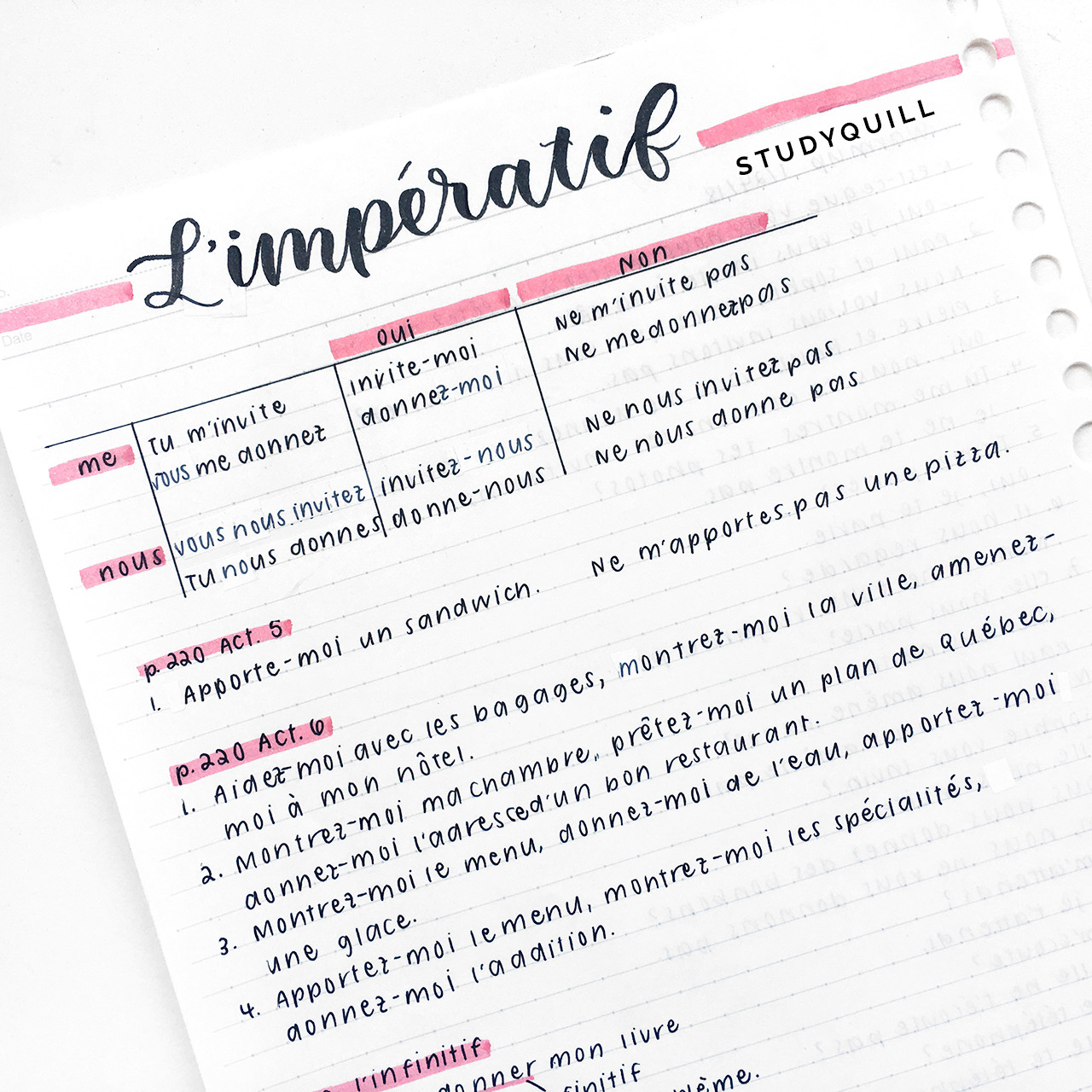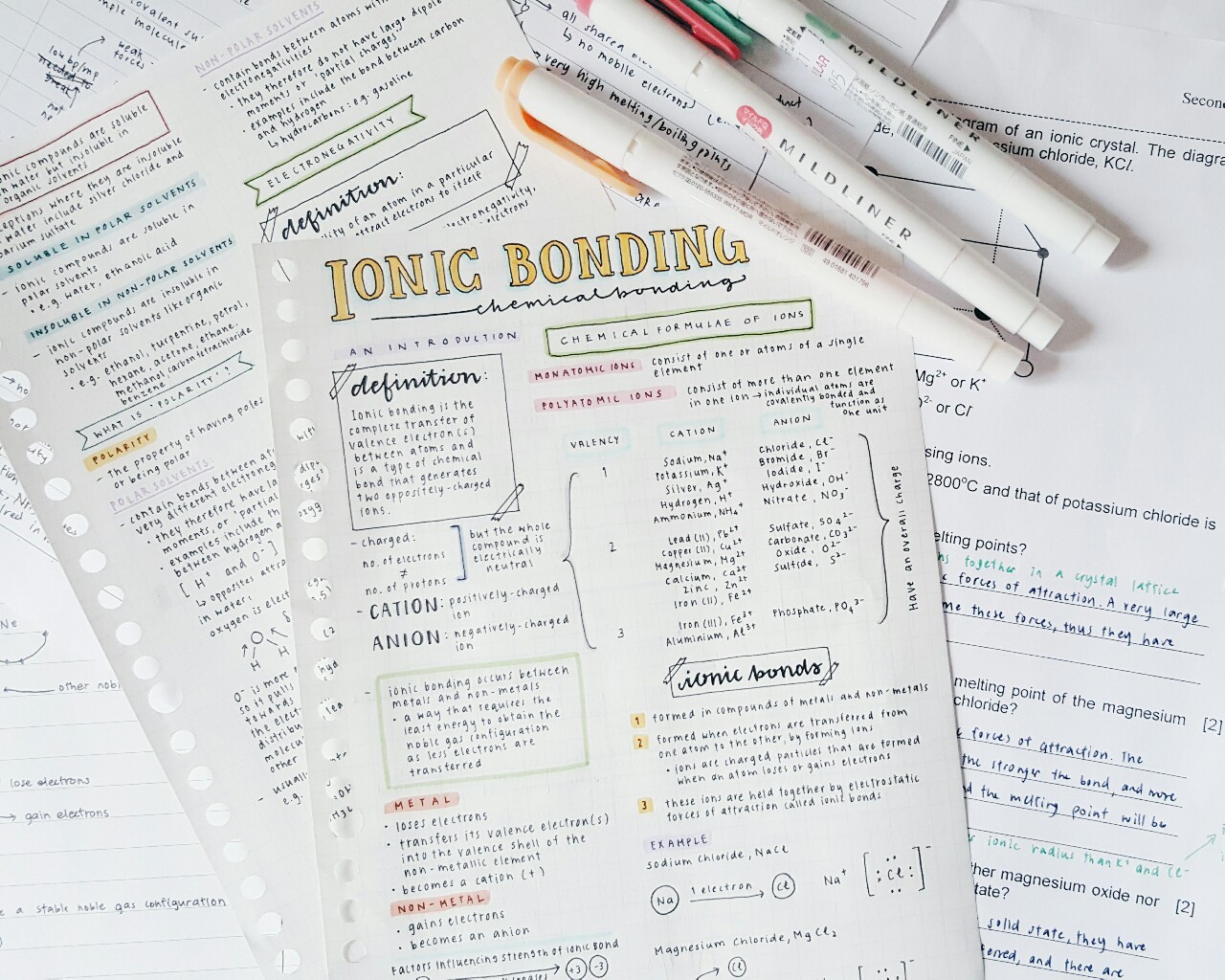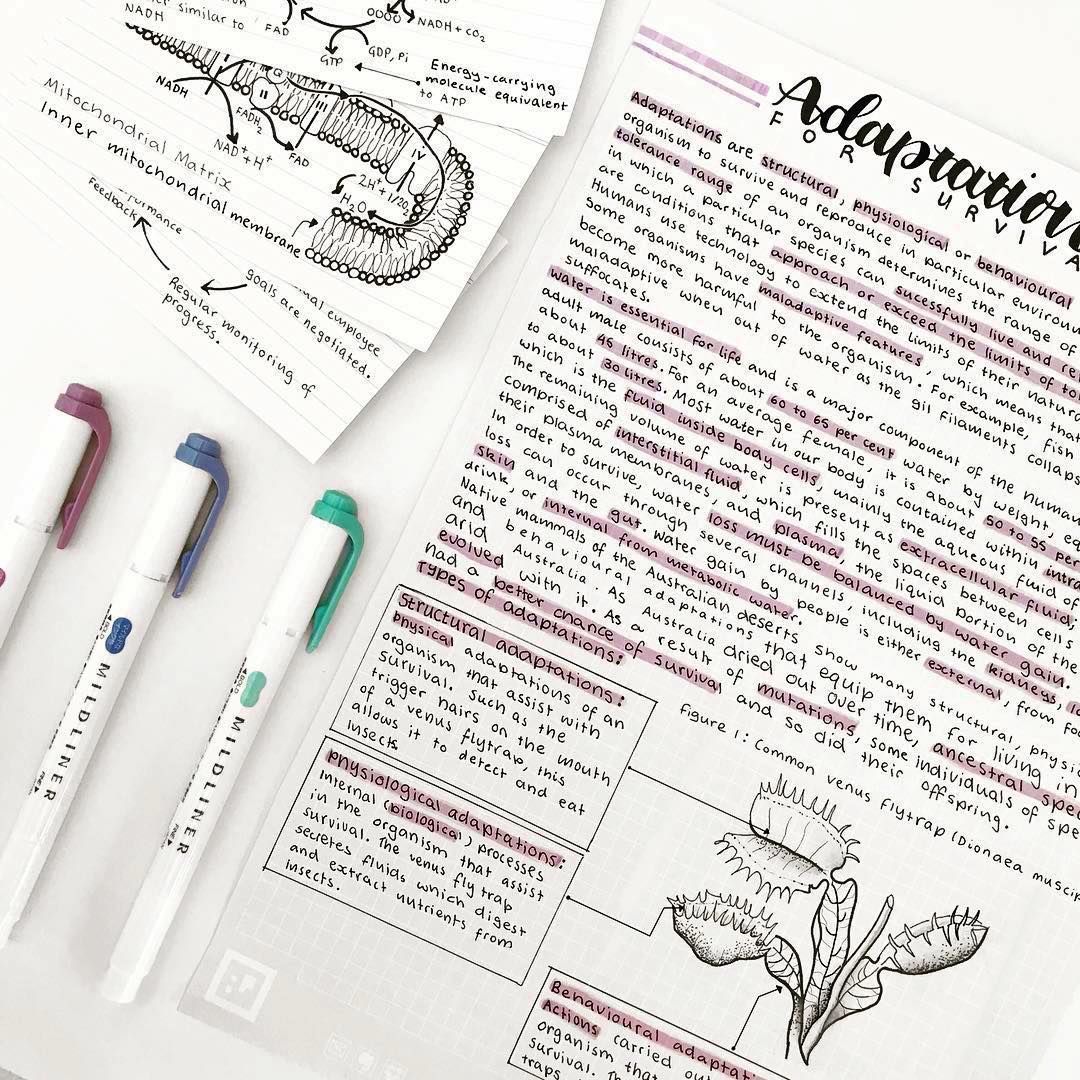
Try This Simple Trick To Stop Cramming For Exams
It is a well known fact… cramming is not a good method for studying for an exam.
But are all guilty of it right? So the question is how do we stop cramming for exams?
The overarching way to stop cramming for exams is to adopt spaced learning methods into your study schedule. This could be by using an assessment action plan template, studying for a little bit each day, using an assessment term overview template, trying block scheduling methods and many more.
Why cramming for exams is not an effective method of studying.
#1 Cramming increases your stress
Cramming increases your levels of stress because you have so much to learn in such a short time. As you probably know there is an ideal amount of stress to study well. In the situation where you only have a few hours until your exam and you don’t know much, your stress levels will be too high to learn properly.
#2 When you cram you are doing it to remember not to understand
Even if you can successfully cram and memorise everything that you need to learn for a test it won’t do you any good in the long run. All the information that you spent hours cramming will be in your short term memory and not your long term. This means you will not be able to reproduce this information for future tests and also not develop a deeper understanding of concepts. If you continually cram it will lead you to fall further and further behind and you will find yourself always needing to catch up.
#3 Memorising content while cramming is very difficult
Due to your increased levels of stress due to cramming, memorising information and facts will become very difficult. Your mind will start wandering to the long list of things you have to do, meaning you will have a difficult time concentrating. Also there are three main steps to memorisation which includes acquisition, consolidation and recall. By cramming you are only doing the acquisition step.
#4 You will lose a good night’s sleep
When you are cramming for an exam you generally stay up very late doing it. This will decrease your performance in the exam the next day as you will be very tired. Sleep is extremely important for the learning process as while you are sleeping your brain consolidates information and puts it into your long term memory so you can easily recall it.
The Best Tips To Avoid Cramming
#1 Adopt spaced-out learning into your study schedule
Instead of learning everything the night before an exam I highly suggest that you plan ahead and space out your studying over time. This is best done the day that you receive your assessment notification so you can make the most of of your time.
Spaced out learning is a very useful phenomenon because it will allow you to be able to better recall information and concepts. It is based upon how our memory works, specifically the forgetting curve which was studied by Hermann Ebbinghaus. Here is a diagram of the forgetting curve:
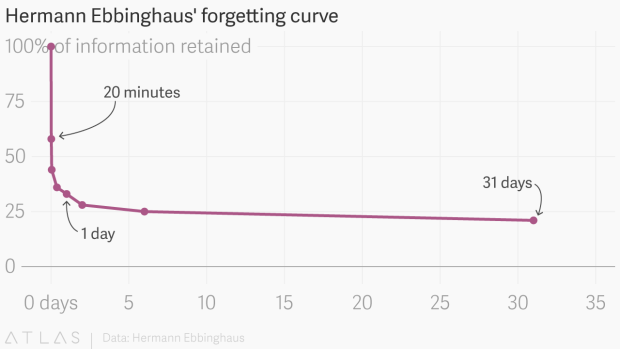
To avoid this steep gradient which represents the percentage of information we have forgotten only after an hour of learning, you can adopt spaced repetition into your study routine.
As you can see in the graph below, spaced repetition eases the forgetting curve. Each time you review your study material you will increase the amount of information you retain.
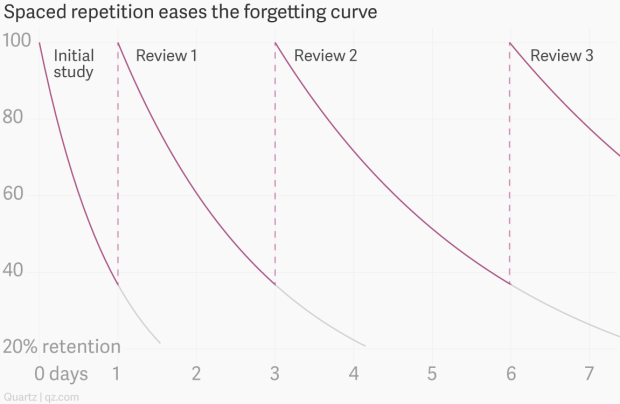
If you are interested in learning more about spaced repetition I suggest that you read my article how to overcome the curve of forgetting.
From these above graphs you can see the value in adopting spaced out learning into your studying schedule. If you cram you are represented by the graph data between 0 days and 1 day. You can see from the graph that you will only retain around 40% for your exam the next day of what you learned the night before!
#2 Use an assessment action plan template
My favourite method for planning ahead and managing my time for assessment tasks and exams is to use the assessment action plan template from my printable time management planner or digital time management planner. It is a template where you can write every single sub task you can think of that you need to complete to prepare yourself for the assessment task. This acts like a brain dump so you do not need to write the tasks in order of completing them. I suggest that you write down really small tasks that take 15 minutes or less to complete. Smaller tasks will motivate you to work towards the larger goal as they will be easier to achieve. Once you have done this rate each sub task using the importance circles. One circle is the least important, five circles is the most important.
After doing the ‘braindump’ sub task activity, you can look at the importance ratings and then make a prioritised to do list. The higher importance tasks should be completed first. After making this list you should look to your diary to schedule a date to complete each task. As you complete them you can tick them off in the checkpoints column.
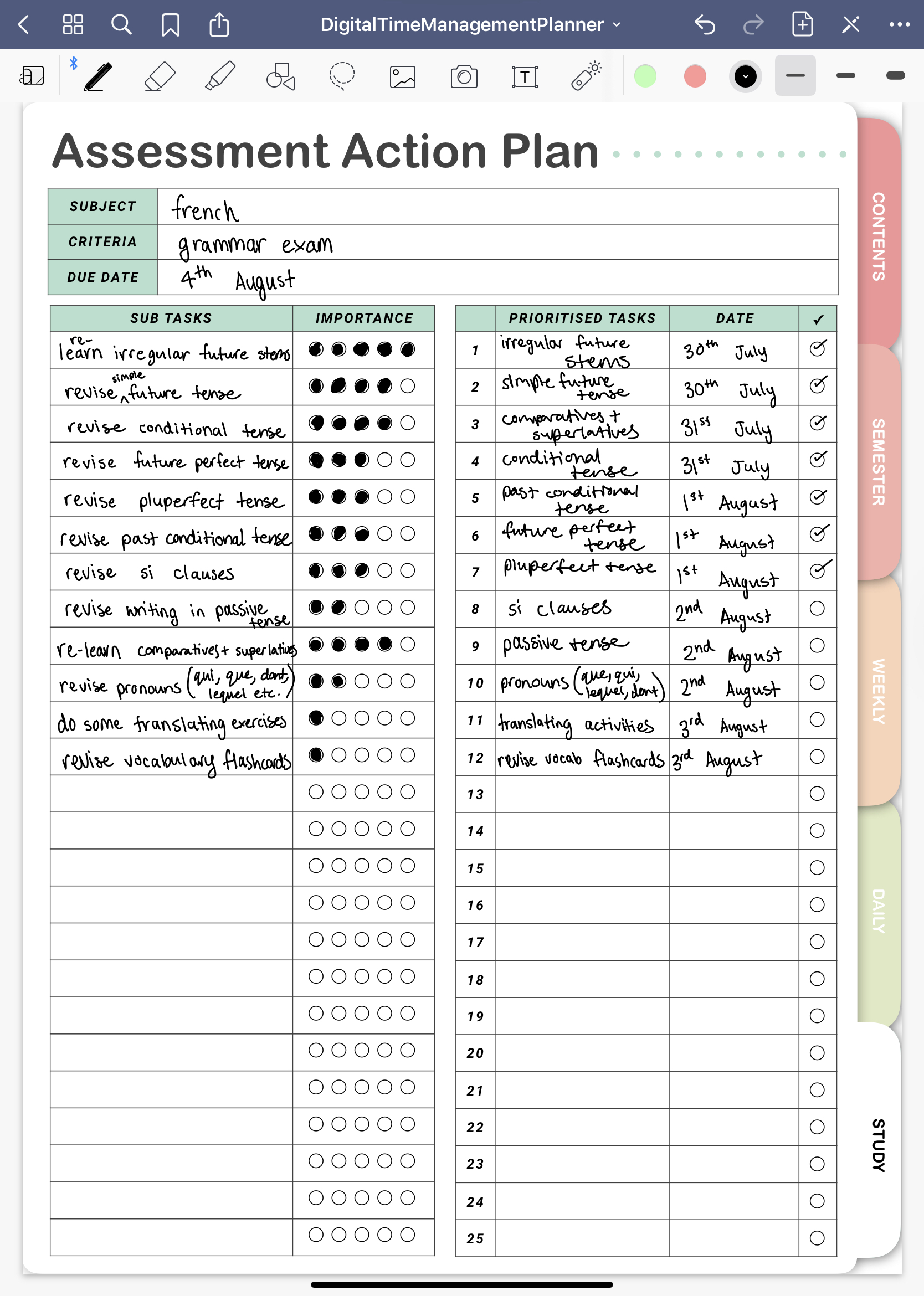
This is a great template to help you avoid cramming as it will force you to plan ahead and assign a date to tasks.
#3 Study a little bit each day
I know that this is easier said than done however doing even 5 minutes of study for 10 days is much more beneficial than cramming 50 minutes of study before an exam.
You can even use a Pomodoro tracker template to motivate yourself to study a little bit each day. This method requires you to breakdowns your study into 25 minute sessions separated by 5-10 minute breaks and is great for your focus.
#4 Prioritise school work and introduce a reward
If you really want to succeed at school you have to prioritise school work over everything else. Make your hobbies/other things you want to do the reward for doing an hour of study after school each day. If you introduce a reward into the equation you will be much more motivated to study and thus you will be less likely to cram everything the night before.
By prioritizing school work you will also avoid procrastination which is another major reason why people cram study.
#5 Use an assessment overview template
The assessment overview template is also in my printable time management planner and digital time management planner. It is another handy template to help you avoid cramming and to plan your studying in advance.
On the template there is a column where you can write the name of each of your subjects. Then there are columns for each week of the term. It comes in two options either 10 weeks or 12 weeks. For each subject row fill out the correct cell/box for assessment tasks, assignments and exams you have coming up.
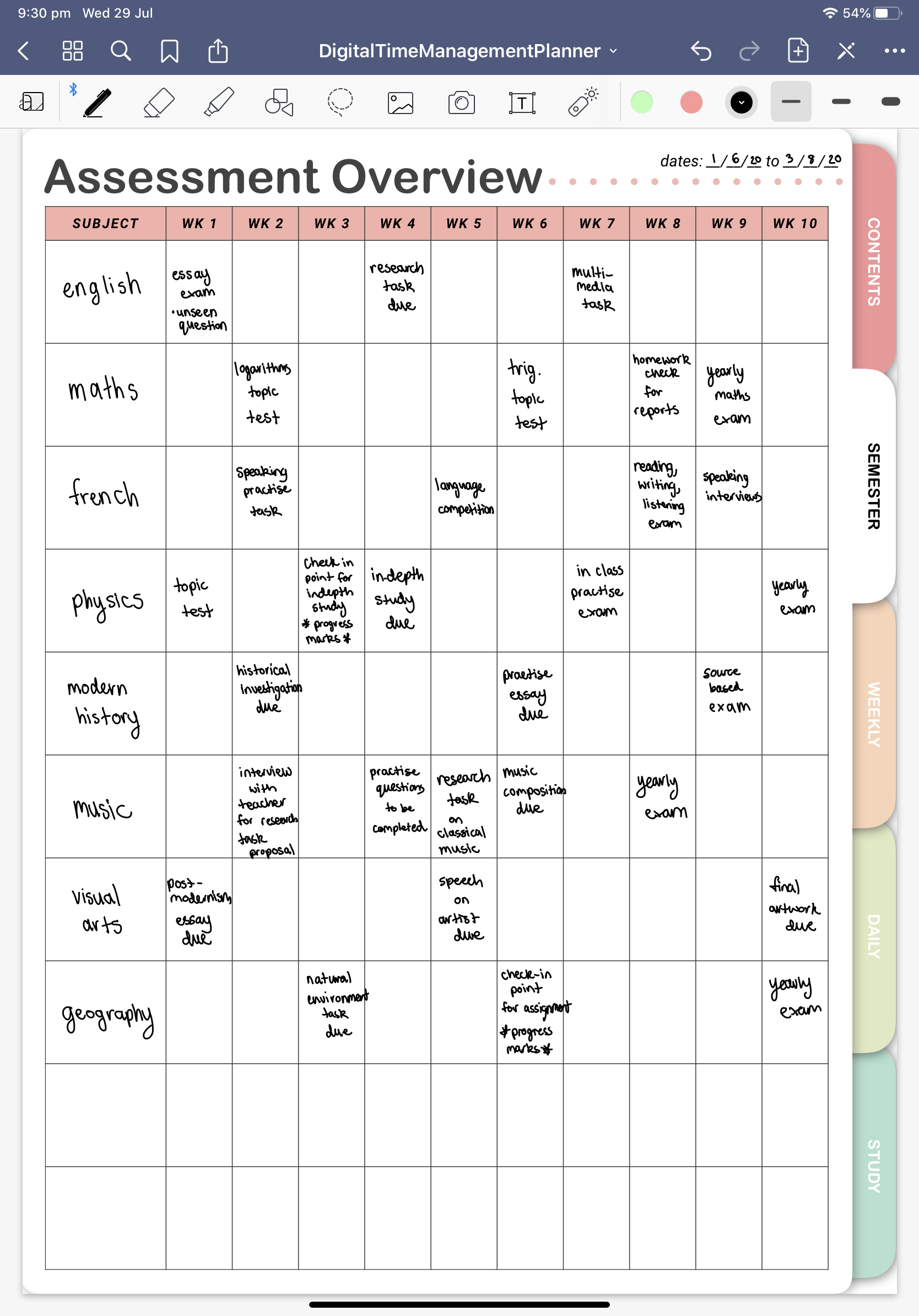
For example one row might be dedicated to physics and this term you have two assessments, one in week 3 and another in week 9. You would write down the name and brief details about the assessments in these cells/boxes.
This is a really handy template because it allows you to see a quick overview of every assessment you have for the term, categorised by subject. It will help you prioritise tasks and studying by what exam is coming up first.
#6 Use the time blocking scheduling method to plan out your study sessions
A way to implement spaced out learning is to use the time blocking scheduling method. You can do this by using the weekly time blocking template in my digital time management planner or do it by using a calendar app on your laptop or phone.
The days leading up to an exam I suggest blocking out times in your calendar that you will dedicate to studying. This might be one hour before school or an hour after school each day.
You can also apply this scheduling method to your whole daily plan as it is a great way to stay productive!
#7 Use the night before an exam as a final review
My final tip for avoiding cramming is to use the night before as your final review. Spend one or two hours going over the content that you are least confident with (you should already have studied everything at this point). After this do something relaxing to keep your mind off the exam. For example, read a book or watch a movie.
Also make sure you go to bed early and get at least 8 hours of sleep!
Before You Go!
Are you passionate about language learning?
Be sure to check out my article on the EASIEST way to learn a language by yourself! and my Digital Language Learning Planner!
If you take notes using your iPad, you need to know these 12 iPad note taking tips! They will make …
There are many different note taking methods that can work well for language learning. To take effective notes for language …
To take pretty notes you need to firstly choose a consistent colour scheme. Next you should draw an eye catching …
To take notes on a PDF on an iPad you need to use a note taking or PDF reading app …
To get motivated to do school work one should set SMART goals, work in a motivating environment, break large projects …
To take aesthetic notes one needs to choose a consistent colour scheme, use eye catching titles and headers, invest in …


